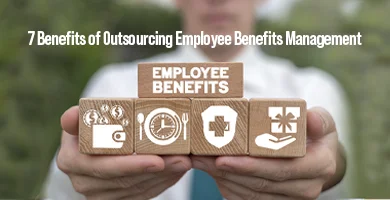When organisations collaborate on projects with multiple parties, they can face a variety of liability issues, including property damage, bodily harm, product liability, and advertising. To offset these risks, each party comes to a business agreement which should have some form of insurance coverage, but examining each policy takes time and adds the danger of important facts being ignored. These risks and responsibilities can be mitigated using insurance certificates. If a certificate of insurance is required in your day-to-day operations or project, make sure your partner provides one.
What is a Certificate of Insurance?
A certificate of insurance (COI) is a one-page document outlining important information from an insurance policy. Although it is not a replacement for a genuine and original insurance policy, the COI acts as proof of insurance and proof of specific insurance coverage.
-
As a requirement of doing business with the insurance company, clients may request a COI. For informational purposes solely, the COI can be issued without a specific certificate holder. A COI holder may be a direct beneficiary of the insurance policy.
-
The insurance coverage may provide them with only a limited or no immediate cash advantage (i.e., they want evidence of the coverage and notification if the policy is cancelled).
Who Needs a COI?
The answer to this question is contingent on the function your organisation plays in a joint venture. For example, if you own a restaurant and work with a company that supplies you with meat products, you’ll want to make sure they’re covered. What’s up with that? Because if they aren’t covered and sell you rotting meat, your insurer will have to cover all of the damages if your customers become ill and file lawsuits against you
Similarly, if your restaurant is engaged to host a function, the person or group employing you will want to know that you are insured before signing the contract and granting you the work and will most likely seek a Certificate of Insurance (COI).
The act of requesting an insurance certificate has nothing to do with trust. It’s all about limiting risk and ensuring that you’re covered if something goes wrong. Even if you trust the company with whom you’re partnering and have previously worked with them, you should still request a COI whenever you sign a new contract or agreement with them. This eliminates the possibility of you incurring unnecessary risks for the work that your partner company has been paid to do.
Having a certificate of insurance can be the difference between obtaining the job and not getting the job. Each time you sign a contract with a new or existing client, you’ll need one. Simply said, it denotes the existence of your coverage.
To ensure that your insurance policy is legitimate and in existence, clients want you to supply them with a certificate of insurance. They want to know that if there are any claims, they won’t be held liable for any injuries, poor workmanship, or damages resulting from your job. Even if your client is aware of your policy, issuing a COI adds validity and professionalism to your image and that of your company.
Your clients may rest easy knowing that your insurance policy is up to date. Your customer could be held liable if you cause any damages or accidents without the certificate. You don’t want to lose your work because you are unable to show the certificate.
Why COI are Essential?
Insurance certificates are vital for you, your partners, and your consumers. Being able to offer proof of insurance as a firm that is insured makes it much easier for you to form partnerships and expand your business. Few firms or clientele nowadays are willing to partner or deal with an uninsured corporation, so being able to secure a COI when needed is critical to your company’s success.
If you’re bidding on a contract or work, the company you’re bidding on will almost always need you to submit a COI with your bid. In most circumstances, having sufficient insurance and being able to show it will offer you an advantage over other companies bidding on the same work who may not be legally covered.
There may be situations when you are the one who requests a COI from another company. If you’re a construction business that frequently employs subcontractors to collaborate with you, for example, you should ask for proof of insurance from these subcontractors. If your subcontractors make a mistake that causes damage to properties or injuries and they don’t have insurance, you could be held liable.
Three key reasons behind owning it:
Serves as proof of insurance:
A COI explains the presence of the insurance policy as well as its contents. The COI assists in keeping this information organised because different vendors and contractors require different levels and types of insurance.Saves time:
COI allows you to quickly access information contained in the insurance policy, reducing you time. A COI decreases the amount of information that must be stored and examined because many insurance policies are several pages long. It can be tricky and time-consuming to organise all of the insurance documents and make sure that each party has the necessary coverage when dealing with multiple parties. It is more efficient to store many COIs.Reduces legal risks:
Because a loss can be passed to the third party’s insurer, having a COI reduces the risk of liability. When interacting with various contractors and suppliers, you may become subject to the specifics of their policies, as each company’s employee poses a danger of personal injury or death.We perform regular account reviews to ensure our clients have the protection they need, but Contact Fusion Business Solution today to learn more.







